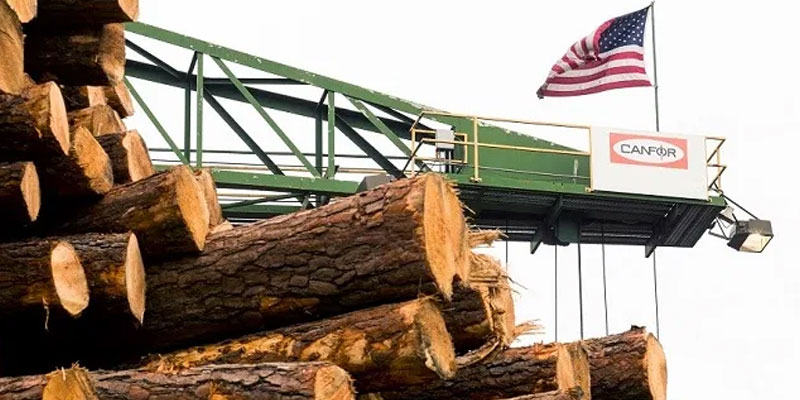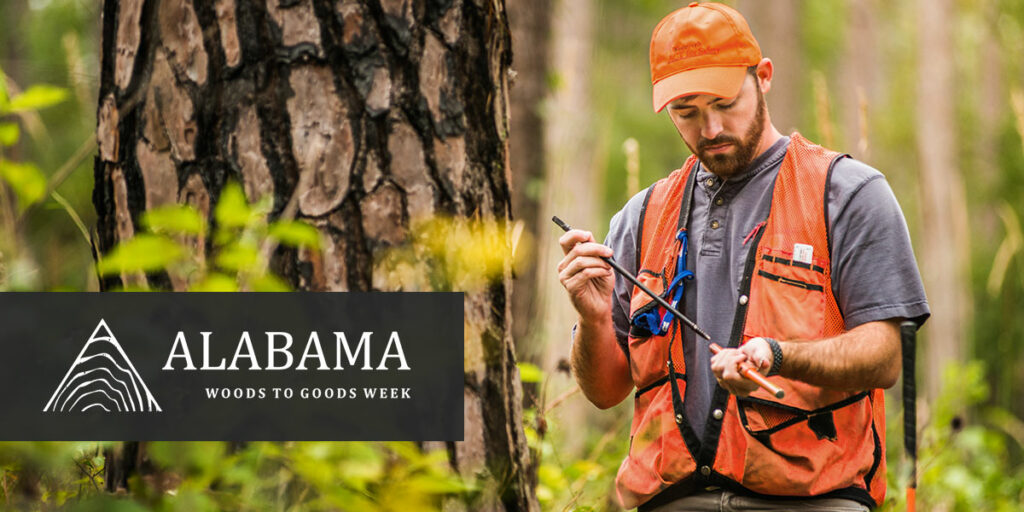The forest products industry has long been important to Alabama, and the evolution of the industry is ensuring it will continue to play a vital role in the state’s economy.
“As an industry, forest products is evolving,” said Gary Faulkner. “It’s an exciting time, with new technologies, products, sustainable resources, geographical market shifts and other factors creating opportunities for all segments of the industry. But, at the end of the day, everything still revolves around resources – and we have the resources and the business climate to ensure that the forest products industry continues to thrive in Alabama.”
Faulkner is the forest economic development specialist for the Alabama Forestry Commission (AFC), the state agency that manages, protects and educates the public about forest resources. His enthusiastic view of the industry’s future in Alabama is shared by Brian Via, Regions Bank professor and director of the Forest Products Development Center at Auburn University.
“The forest products sector has always been very important to Alabama financially,” Via said. “Now, thanks to the commitment to developing new products and reaching new markets, the industry is in prime position to expand.”
Alabama’s forest products industry is among the state’s top-tier manufacturing sectors, especially in rural communities. It produces $4 billion worth of products annually, including nearly $1.4 billion in exports.
Over the past decade, forest products have added 10,000 new jobs in Alabama, along with $6.7 billion in capital investment. Today, Alabama’s wood-based economy accounts for more than 43,000 jobs – a figure projected to grow by more than 10% by 2025 – and more than $2.4 billion in annual payrolls.
While those projections were pre-COVID-19, the industry appears to be weathering the worst impacts of the pandemic. One example is the increased demand for toilet paper from Georgia-Pacific’s facility in Choctaw County, where the company employs 900 and recently completed a $120 million expansion. Two other manufacturers – in Mobile and Cherokee counties – employ a combined total of more than 1,000 Alabamians in producing toilet paper from recycled paper.
“COVID affected all of us in the forestry sector,” the AFC’s Faulkner said. “But the industry has persevered well as a designated ‘essential industry,’ and the trends continue to look good. As we get to the other side of the pandemic, Alabama’s forest products industry will be the right place, at the right time, with the right products.”
Sustaining Alabama’s success and building for the future of forest products lies in managing and expanding the state’s rich timber resources. While forests cover approximately 30% of land in the lower 48 U.S. states, more than two-thirds of Alabama’s land area is covered by forest timberland. In 2019, the U.S. Forest Service’s Forest Inventory Analysis reported that Alabama has 42.2 billion cubic feet of standing timber – the largest recorded inventory in the state’s history.
“We do a good job of managing our forests,” said Auburn’s Via, pointing out that for every tree being harvested in Alabama, 1.6 are being planted. “That’s a real asset, and it’s going to continue to be critical for long-term growth.”
At the same time, Via adds, new innovations are emerging to meet the needs of new markets, providing value-added products and jobs from Alabama’s renewable resources while continuing to support a service and supply chain that generates additional jobs and economic activity. Via’s work at Auburn includes research and development of sustainable adhesives, fillers and wood composites. He notes the growing use of cross-laminated timber (CLT) for large-scale projects such as high-rise buildings, which will continue to increase with the update of the International Building Code to allow for greater use of CLT.
For generations, the forest products industry in Alabama has benefited from the combination of soil, water, climate and location that make the state one of the industry’s national leaders. Now, as growing numbers of businesses and individuals are recognizing the competitive advantages of sustainability, Alabama is positioned to build on that prominence.
Helping to accomplish that task is a dedicated network of professionals who understand the needs of the forest products industry and have the knowledge and experience to ensure continued success. That includes numerous state agencies, educational institutions, local economic developers and the state’s utility providers.
“Alabama has a great team,” Faulkner said. “Everybody recognizes the importance of the forest products industry and its future. We can support our industry to be successful, and thanks to the quality of the team we have and the strength of the industry, success is something we expect.”
For more information on Alabama’s Forest Products Industry, visit Amazing Alabama.
(Courtesy of Alabama NewsCenter)












